Throughout history, human dietary habits have adapted to the local environment and climate. For instance, in many southern regions with high humidity, people tend to favor spicy foods, such as in Hunan, Hubei, and Sichuan provinces. However, there is one particularly humid area—Guangdong—where Cantonese cuisine rarely features spiciness.
So, what do the people of Guangdong rely on for spleen tonification and dampness removal?
Finally, we discovered their health-preserving secret—Chenpi (aged tangerine Peel).
The traditional approach of the Cantonese is to steep Chenpi in water or use it in soups, which helps to promote qi movement, eliminate dampness, and transform phlegm.
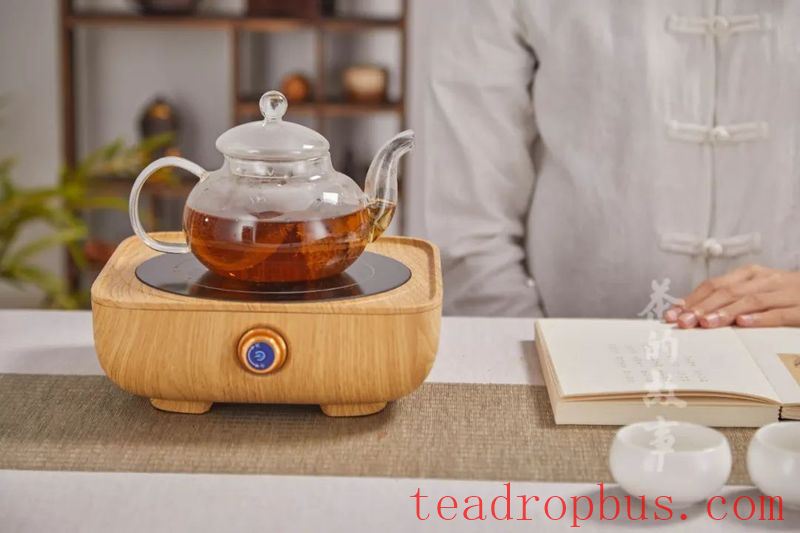
This method is truly excellent, simple yet balanced, with noticeable effects. Tea enthusiasts who enjoy Drinking Tea and making soups might want to learn more about this.
Chenpi is versatile; here are some combinations:
Chenpi has multiple uses: it can be consumed alone, steeped in tea, used in medicine, and added to dishes. However, some tea enthusiasts may be unsure about how best to combine it.
Chenpi can complement tonifying herbs to nourish deficiencies, work synergistically with descending herbs, and produce different effects when paired with various foods.
1. Ginger: Most households likely have ginger on hand. Chenpi ginger tea is suitable for the elderly, helping to regulate digestion, improve appetite, and calm the mind. If you often feel fatigued or catch colds easily, a cup of Chenpi ginger tea can be beneficial. The gingerols in ginger increase blood circulation, open pores, and increase sweating, which helps to dispel wind-cold from the body.
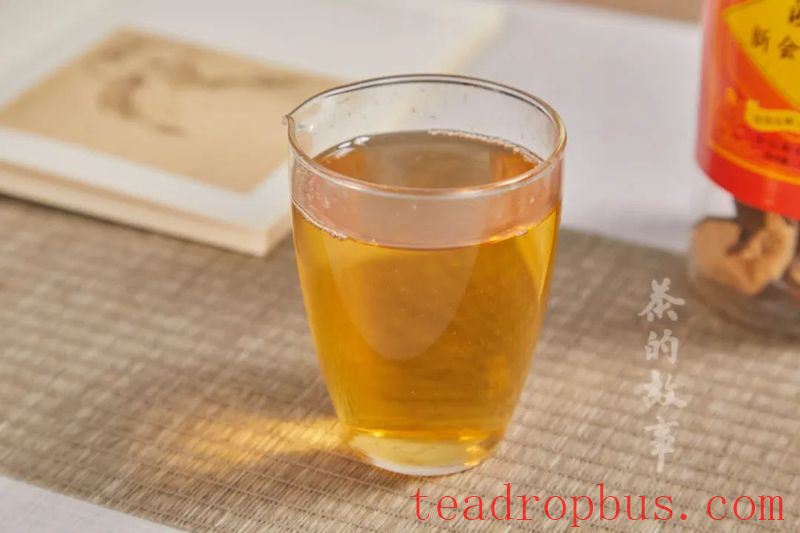
2. Pu'er tea lovers at home can try adding a slice of Chenpi while brewing their tea. Pu'er tea contains vitamin E, tea polyphenols, and amino acids, while Chenpi provides vitamin C, both of which have antioxidant properties. Drinking them together can help freshen the breath and protect teeth.
3. Chenpi red bean soup is also quite common and suitable for all ages. It's simply delicious! Refreshing and moisturizing, it's an ideal summer treat to cool off.
4. Or mix Chenpi water with honey. The hesperidin in Chenpi can help regulate blood sugar and lipid levels, and when combined with honey, it can have anti-inflammatory and detoxifying effects.
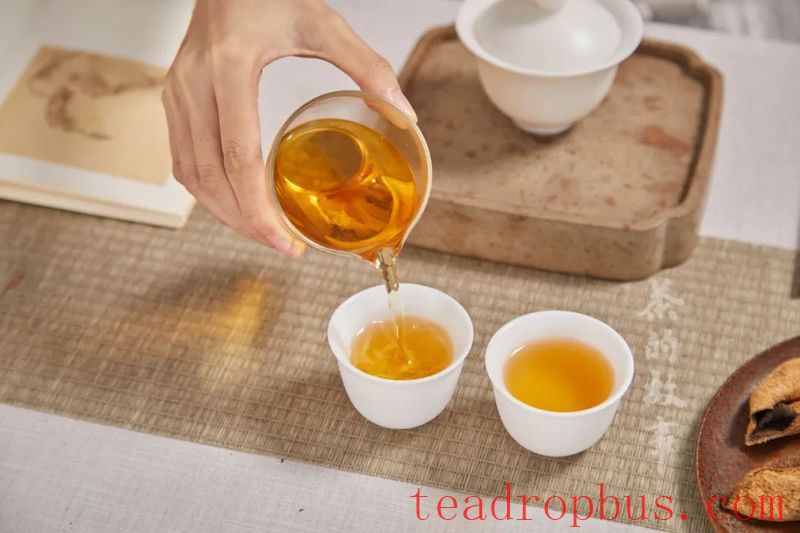
Medicine and Food Share Origins, Genuine Products from Specific Areas
Chenpi is both a medicinal herb and a food ingredient.
In the “Léigōng Páozhì Yàoxìng Jiě” (Explanation of Pharmaceutical Properties by Léigōng), Chenpi is described as follows: “It has a bitter and slightly acrid taste, is warm in nature, and non-toxic. It enters the lungs, liver, spleen, and stomach meridians. It primarily descends qi, aids digestion, transforms phlegm, and breaks up stagnation… It is produced in Guangdong, and the older the better.”
When selecting Chenpi, it is essential to choose genuine materials. Authentic Chenpi originates specifically from Xinhui, Jiangmen, Guangdong.
Why is Xinhui Chenpi considered genuine?
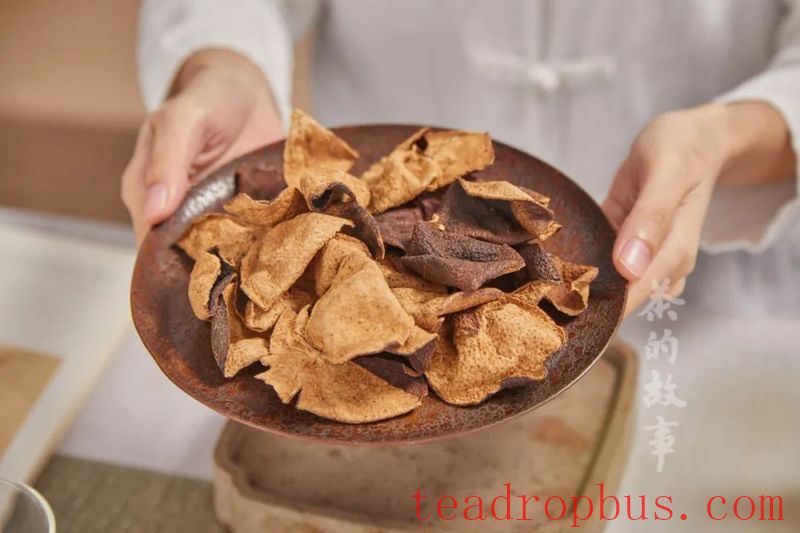
To understand the meaning of “genuine,” we must go back to the Han dynasty, where the government referred to the administrative regions inhabited by ethnic minorities as “Dao.” During the Tang Dynasty, the country was divided into ten Dao, such as Jian'nan Dao in Sichuan and Hedong Dao in Shanxi, totaling ten Dao. This number later increased to thirteen and then fifteen. “Dao” refers to an administrative region, while “Di” refers to the place of origin.
Genuine medicinal herbs are those that exhibit distinct regional characteristics and quality.
We emphasize the origin of medicinal herbs because the same species grown in different places can have varying efficacies and strengths.
Circle Branch Mandarin, Rich in Aroma
Xinhui Chenpi is precious, and the closer to the core production areas, the better its medicinal efficacy and higher concentration of active ingredients.
The core production areas are distributed in concentric circles, roughly as follows:
First production area: Tianma, Chakeng, Meijiang, Dongjia, Xijia; Second production area: Sanjiang, Nantan, Xiaogang, Daze; Third production area: Shuangshui, Luokeng, Gugeng…
These areas are located at the junction of brackish and freshwater, with the land being fertile alluvial plains formed by the Pearl River Delta. The soil is rich in organic matter, and the irrigation water is a unique blend of seawater and freshwater. Additionally, the natural barrier of three mountains surrounding these areas ensures that the quality of the Xinhui mandarins cannot be matched by other production regions.
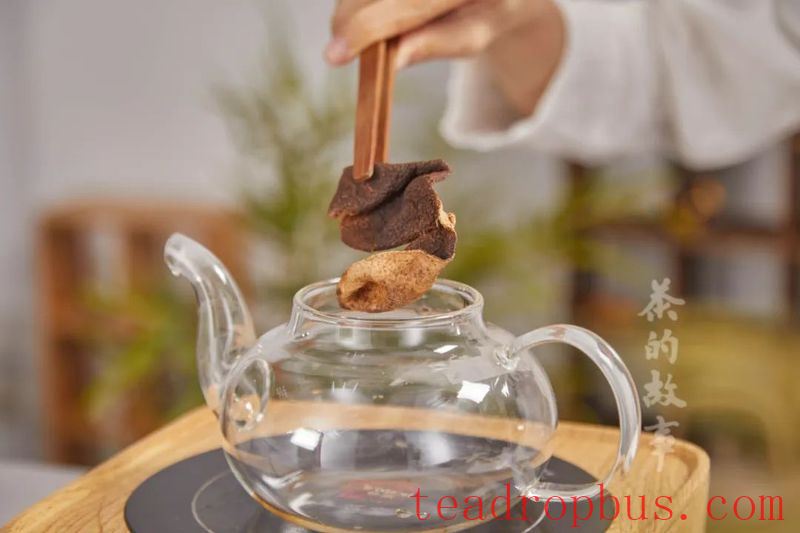
The longer Chenpi is aged, the gentler its potency becomes, and the harshness dissipates completely.
Besides using three-year-old Chenpi for its ability to disperse cold and promote lung function, when using Chenpi for qi movement and dampness removal, it is recommended to use Chenpi aged five years or older, or even ten years old.
Furthermore, if stored properly, aged Chenpi can increase in value over time.